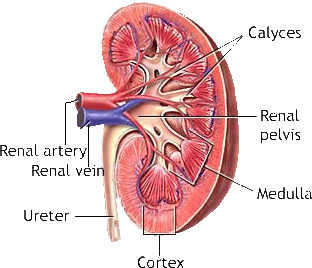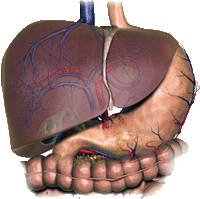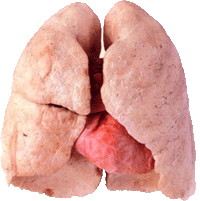 |
|
|
|
| |
Why Organ Donation :: |
|
|
In 1994, the Government of India passed the Transplantation of Human Organs Act that legalized the concept of brain death and, for the first time, facilitated organ procurement from heart beating, brain dead donors. However, this concept has not caught on well in India for want of public education and awareness. This in turn is perpetuating the commercial sale of human organs due to the widening gap between the demand and supply. Thousands of lives are lost in India annually from heart and liver failure since transplantation of unpaired organs like heart, liver and pancreas is either difficult or impossible from living donors. This is only possible on a large scale if these organs are available from cadaver donors. |
 |
What is organ and tissue donation?
Organ and tissue donation is a way to help others, after your death by allowing organs or tissues to be taken from your body and transplanted in someone else’s body. It may save another person’s life. Organ and tissue donation is a way of “giving something back” to society. It costs nothing, it does not change your own life, and it can mean a huge improvement to others’ lives. Organ and tissue donation is completely your choice. |
|
|
|
Why should you donate your organs and tissues?
Organ failure can strike anybody at any time as a result of illness or infection. For most people who experience organ failure, a transplant is their only realistic treatment option. If you die, your organs could help several people through organ transplants and many others through tissue grafts. For e.g. your liver could save the life of someone whose liver has been damaged through illness or accident. A person who is attached to a dialysis machine could return to full-time work after receiving one kidney. Every effort is made to save your life before donation is considered and donation does not disfigure the body.
Who can become a donor?
All individuals can indicate their intent to donate. Medical suitability for donation is determined at the time of death. There are no age limitations on who can donate. The deciding factor on whether a person can donate is the person’s physical condition, not the person’s age. Newborns as well as senior citizens have been organ donors. In persons under 18 years of age the parents or guardian must consent. |
How to become an organ and tissue donor?
Indicate your intent to be an organ and tissue donor on your driver’s license. Carry a organ donor card.
Most important, discuss your decision with family members and loved ones. Even if you sign a donor card, it is essential that your family knows your wishes. Your family may be asked to sign a consent form in order for your donation to occur.
What can be donated?
Organs: heart, kidneys, pancreas, lungs, liver, and intestines
Tissues: currently transplanted human tissues include bone, corneas, skin, heart valves, veins, cartilage and other connective tissues.
Bone marrow |
 |
 |
When are organs donated?
Organ donation is only possible after death has occurred.
Following the consent of your family, the entire organ retrieval can take several hours. Blood testing and tissue typing also needs to take place before the procedure.
Families of organ donors are kept informed at every step. It is ensured that the retrieval procedure is over as soon as possible and causes as little disruption as possible. |
|
Where and how does organ and tissue donation take place?
Organ donation always occurs in a hospital operating theatre, after death has been declared and the family has given consent. The incision is covered with a dressing, as in all surgical procedures. The body is treated with respect and dignity, and the family can view and spend time with the deceased afterwards. Normal funeral and burial arrangements can proceed. If a person dies in a hospital or nursing home, the family may be asked whether they wanted to donate tissues. If the death occurs elsewhere, the family should let the attending doctor know if this is what the deceased person wanted. This should be done as soon as possible after the death.
If the family consents to organ donation then the life-support machines will remain switched on. This will protect the organs for transplantation. The hospital staff may continue administering drugs to the deceased person in order to stabilize the organs. Without these drugs and a supply of oxygen, the organs would deteriorate rapidly and transplantation would not be possible. Surgery commences soon afterwards and may take several hours. Immediately before the organs are removed from the body, all mechanical ventilation is ceased and the heart is stopped. Once removed the organs are flushed with preservation fluid and specially packed in a cool chamber. They are then transported to the hospitals where they will be transplanted. |
Can organs be sold?
The National Organ Transplant Act makes it illegal to sell human organs and tissues. Violators are subject to fines and imprisonment. Buying and selling of organs might lead to inequitable access to donor organs with the wealthy having an unfair advantage.
How are organs distributed?
Patients are matched to organs based on a number of factors including blood and tissue typing, medical urgency, time on the waiting list, and geographical location.
|
 |
|
 |
Cadaver Transplant
What is organ transplant?
When a healthy organ is taken from an individual who has died and transplanted in to the person whose own organ is not functioning properly.
Why is organ donation required?
Some times people suffer from irreversible organ failure and the only way they can recover or lead a normal life is to receive an organ transplant. |
|
Who can be a prospective donor?
Any healthy person of any age group willing to donate his/her organs can become a prospective donor. |
What medical conditions exclude a person from donating organs?
HIV and cancer (except localized cancer of the brain) normally exclude people from donating organs. Otherwise, the organs are evaluated at the time of death. |
Which are the Organs/Tissues that can be transplanted?
The most frequently transplanted organs/tissues are Kidney, Liver, Heart, Eye, Skin and Pancreas. |
How Can I become a donor?
You have to sign an organ donor card and carry it with you all the time. Let your family know about your decision, this will help to ensure that your wish is fulfilled. |
Can any one donate his/her organ after death?
Organ donation is preferred in Brain Death cases, where Individual is still on life support in an ICU and the heart keeps beating. However, eyes can be removed even after six hours of death. |
How do doctors tell the difference between brain death and coma?
Unlike brain death, coma is a state of unconsciousness. The patient in coma is medically and legally alive and may breathe without medical assistance. The brain still functions (and may heal) and there is blood flow to the brain. |
Are transplant doctors involved in diagnosing brain death?
No. The diagnosis of brain death would be confirmed by four appropriately qualified doctors, who are not part of a transplant team.
Will the hospital hasten my death or not treat me as well if they I will be an organ donor?
As with any patient, doctors and nurses will fight to save your life to the best of their ability. Only after the patient is declared brain dead, organ donation will be considered. |
Can organ donation really save somebody's life?
Yes! The organ, which you donate, will be used to save somebody's life. |
Myths Facts
There will be additional expenses for organ donation. There are no expenses for organ donation.
My religion does not approve organ donation. Religions support donation on the grounds that it is a gift of life to another person. If you are in doubt you should talk to your religious head.
I have mentioned my wish to donate my organs in my will so I need not do any thing else. By the time your will is read it will be too late. Signing your organ donor card and informing your family member is the best way to get your wish fulfilled.
My body will be mutilated after organ donation Surgery for organ removal is done as precisely as any normal surgery so your body will not be disfigured
Organ transplant is still experimental Organ transplant is no more considered as experimental. Success rate is as high as 90% |
|
Copyright 2009 All rights reserved |
|